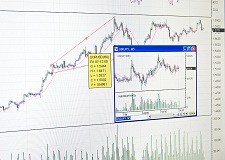Why a good contract is good for you too…
We’ve heard customers express aggravation at the lengthy, detailed contract language that some suppliers provide. A well-written ESCo/Supplier contract should protect you, the customer, as well as the supplier.
MWh conducts data and contract analysis as part of the online service we provide. Sometimes, customers enter into a contract that is non-standard. In particularly challenging cases, we have found that ESCO or supplier contract language is so vague that the customer has no way to know what they should pay. This issue is particularly true when it comes to variable rate products.
What to look for in a contract
So we offer customers the following advice:
1. If you opt for a variable rate, make sure the description of the rate clearly ties to a verifiable market price.
2. Make sure your contract specifically references the following when describing the billed energy rate (this example is specifically for NY, but you can substitute another ISO for NYISO): Hourly energy billed at NYISO Zonal Day Ahead prices and adjusted for losses using the utility-defined loss factors.
Without this information, you are literally flying blind. You are at the mercy of an ill-defined cost structure and are at risk of paying a lot more than you should pay. Ask your supplier what rate they use for a loss factor. Ideally, they would quote you a rate (say 5-6%) and then they would refund or re-bill any actual losses that deviated from that number.
3. Be wary of any index contract that promises savings or a rebate at the end of a contract term. An honest index rate never promises savings since, as we note in this article. It is generally difficult to “beat” a default rate that is based on an index, as most NY default rates are.
4. In fact, savings of any kind in a variable market is suspect. If any supplier or ESCO promises savings, make sure you have a clear mechanism for verifying the promised savings.
5. In any market, NY, PJM, ERCOT, MISO, New England, wherever you are, make sure that you can track and verify the product that you’re buying as well as the success of the strategy that you have chosen for your business. For more on strategy, see our product overviews here.
Bottom line for businesses: There is standard contract language for all supplier contracts. Hold your supplier to language that allows you to audit your rate and your costs. None of this information is or should be arbitrary.

